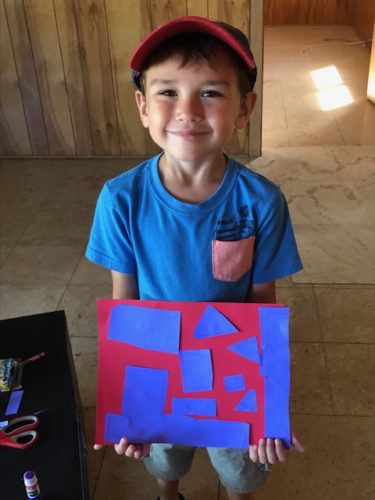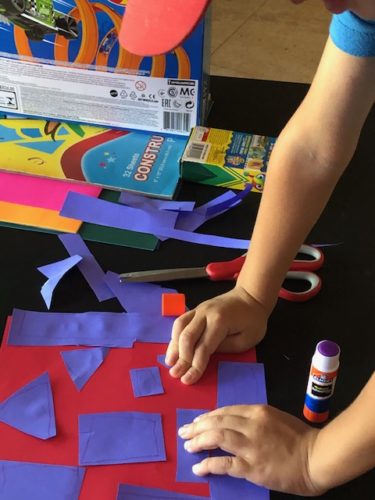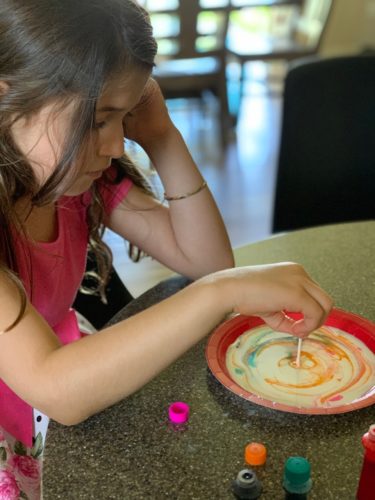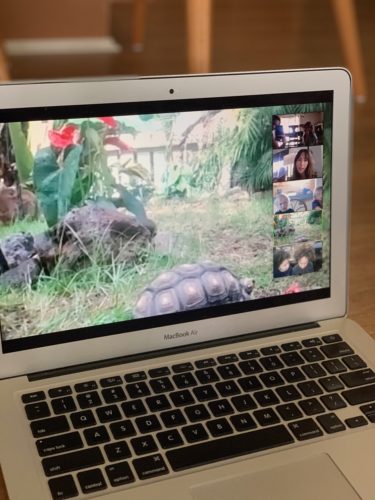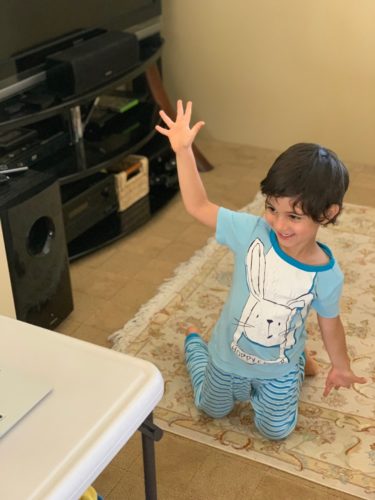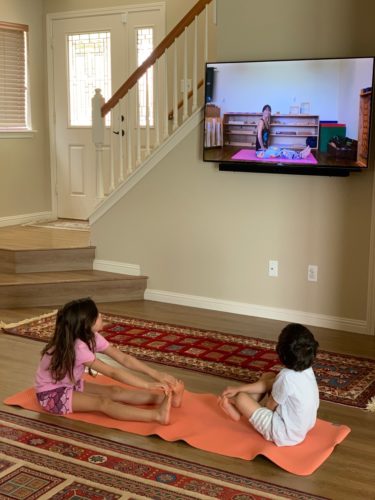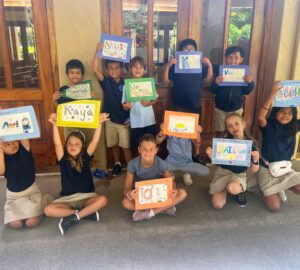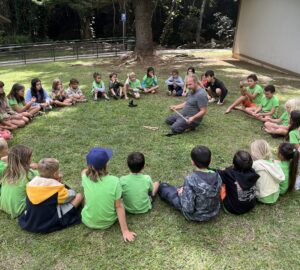In these uncertain times, schools island-wide had to quickly adjust to remote learning for their students. After two months under our collective belts, we talk to Shadi Naderi of Kihei’s Little Hoku Montessori about how the school, parents, and the children are responding to this new world of education. For enrollment information, visit littlehoku.com.
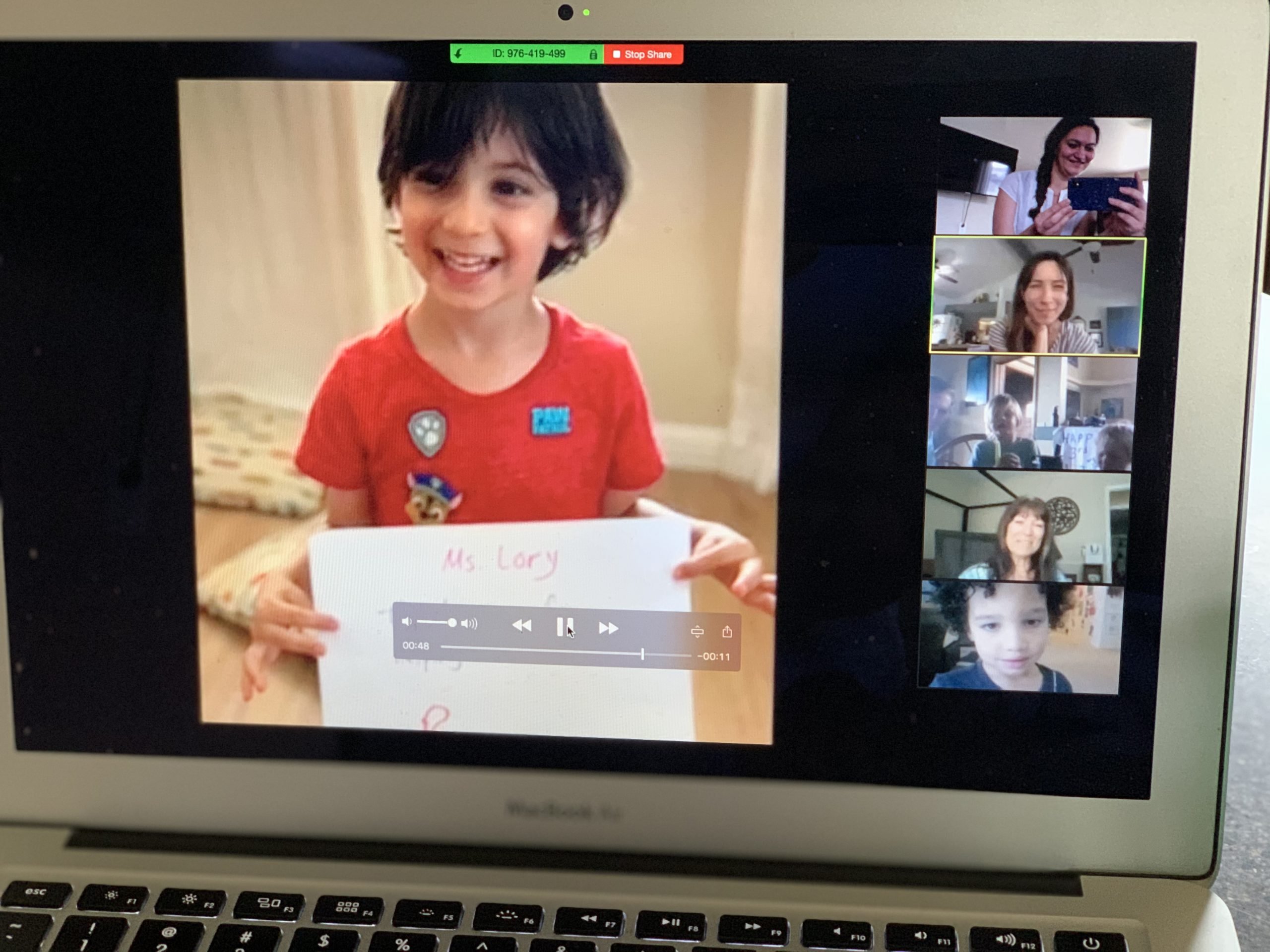
How are you translating your education model into a remote learning experience?
We are a Montessori school which means we value hands-on and in-person experience for our keiki. This makes distant learning challenging, especially with a varied age group. But we are committed to providing the best educational experience while prioritizing the safety and health of everyone, which is why Little Hoku transitioned to e-learning on March 30th. It was a challenge we were ready to take on!
As we transitioned, our main focus was to keep the connections with our families and keiki. We focused on providing them with a virtual experience to help connect them with their teachers and friends. We wanted to make sure they do not feel like they were alone which is why we would start every day with a Zoom meeting with various activities that engaged the students.
Organization was also key in ensuring this transition. Each week parents receive a weekly schedule for the upcoming week. These schedules are packed with a variety of activities that parents could do with their children but are not required. This acts as a guide for them to ensure they have the tools they need to keep their kids engaged.
We also created a YouTube channel where Montessori lessons created by our head teacher are posted. She films these lessons in our classroom, so students could connect with the teacher in a familiar environment. The videos provide guides for parents to do lessons with items they can find around the house. For example using corn meal to trace letters instead of a sand tray. Other lessons include daily meditation and exercising, such as daily yoga practice.
In addition to the general class lessons, just as during our in-person classes, the lead teacher schedules a one-on-one Zoom meeting with individual students where customized lessons are provided based on their needs.
How are the students responding? What has been the most successful aspect of the evolving programs?
The students are responding really well. They get excited to see their friends and teachers. Students have been able to connect and strengthen relationships with their classmates and teachers. Many of us have only seen each other in the classroom environment. With the online meetings, they got a glimpse of their friend’s houses, rooms, backyards, etc. They loved sharing a different side of their life. Many older siblings, who normally would be in elementary school also joined our virtual classrooms. And they got to show off their pets! They also learned their teacher has a little baby and everyone loved to see her! We were also able to celebrate birthdays, Lei day, and teacher’s appreciation week.
Through this pandemic, we have witnessed their enrichment in a way we never expected. Our little keikis learned very quickly how to communicate through a virtual environment. It also helped them to learn how to present their work to other friends. It has been amazing to see that growth.
What have been your students’ favorite remote learning tools and resources and why?
I think they really enjoy seeing their friends through Zoom. They have also really enjoyed taking a virtual field trip to Ms. Lory’s (assistant teacher) garden, meet their land tortoise, Ernie from Argentina and learn about him.
As a working parent (my son attends Little Hoku) I personally love the YouTube lessons and the weekly schedules. They are a great resource I can always refer to and helps save a lot of time from having to plan the activities since it is all right there for me!
What are you hoping students will gain from this unique experience?
This coronavirus pandemic has been a shock for our communities. It has reshaped our lives incredibly fast and in a way that none of us have truly ever experienced. This can be a bit scary for all of us, and certainly for our children. I hope that this experience has provided them with a sense of security, belonging, community, connection, and a bit of fun!
How can parents support teachers and their schools?
It is important for parents to understand that none of us chose this. This outbreak has forced us in a situation where we have to get creative and hopefully we can make the best of what we can out of this. Everyone’s situation is different, but we understand that parents staying home with the kids, while they are worried about a myriad of other things is certainly challenging. We empathize and appreciate their patience. Our teachers are working harder than ever. Engaging with the kids is certainly important, but staying connected with your teachers is crucial to everyone’s success. Talk to your teachers if you find this new normal challenging. They are open to your feedback. Let them help you and let them know you appreciate them.
It is also important to support your childcare provider financially if you are able to. Without the support, childcare providers are in jeopardy of permanent closures. Otherwise, when this pandemic is over and we all have to report back for work, these businesses won’t be there to meet the demand. It is why I am so grateful that our Little Hoku families have been able to continue supporting us through this.
What are you hearing from parents on their concerns and how do you plan to meet the challenges?
The concern at the forefront was of course screen time. This is why our weekly schedule of activities limit that screen time to an hour a day. Most videos are there for parents to watch and help their kids thereafter.
Another concern was that no matter how we plan and frame this, these are young kids and a lot of involvement from parents is required. My husband and I work as full-time scientists. We have both been working from home since the start of the pandemic. I experienced first-hand that it can be challenging to keep the kids on schedule while working. In the beginning, we tried to stick to a rigorous daily routine, but it was very taxing on everyone. Since then we have learned to adjust our work and school schedules to be flexible to minimize the pressure. Parents can move the activities around based on their schedules.
There were also a few families that did not have all the tools needed for remote learning, but we were able to address that by providing them with packages they picked up at the school
Finally, there is a financial challenge for families. While the school requires financial support, we have addressed family needs on a case by case basis. Tuition was waived for some families directly impacted by COVID-19. All other families received a 30% discount for the month of April and 60% for the month of May. We were able to do this in part thanks to our landlord waving our rental fees for two months and also as the owner, I am able to forgo my salary for the time being.
In one sentence, how would you describe what makes your school unique?
I am incredibly proud of Little Hoku, which started with the highest standards set for our keiki education and enrichment, while providing a safe and inclusive environment for them and our employees.

